Enhancing Digital Business Opportunities for Youths in Eastern Uganda
Background
Uganda has one of the youngest populations in the world, with youth (aged 18–35) making up 78% of the total population. However, youth in Uganda are facing challenges in terms of unemployment, underemployment and undignified work resulting from scarce employment opportunities, skills and job mismatch, gender segregation and high youthful population bulge. With a youth unemployment rate of 13.3%, which is above the average national unemployment rate of 9.2%, this high rate is believed to be 10% higher for female youth than male youth. About 54% of those employed are self-employed entrepreneurs driven by necessity, rather than opportunity, and their business activities are basically a survival strategy. The Ugandan government has adopted various policies and initiatives to address the issue including the National Youth Policy (NYP) focuses on agriculture and associated industries, as it is the main livelihood source for Ugandans
In 2020, ACWICT conducted a study which revealed opportunities for the full realization of ICT benefits including in cross-border trading, both in trade facilitation and on its use by women and youth traders to enhance their effectiveness business and trade. To realize maximum benefits
from the opportunities presented by ICT for trade, there is need to invest in change of attitude of women and youth traders on embracing ICT for trading, training on application of ICT for trading and sensitization on cross-border procedures and regulations. This goes hand in hand with accelerated digitalization of business including cross-border trade facilitation systems.
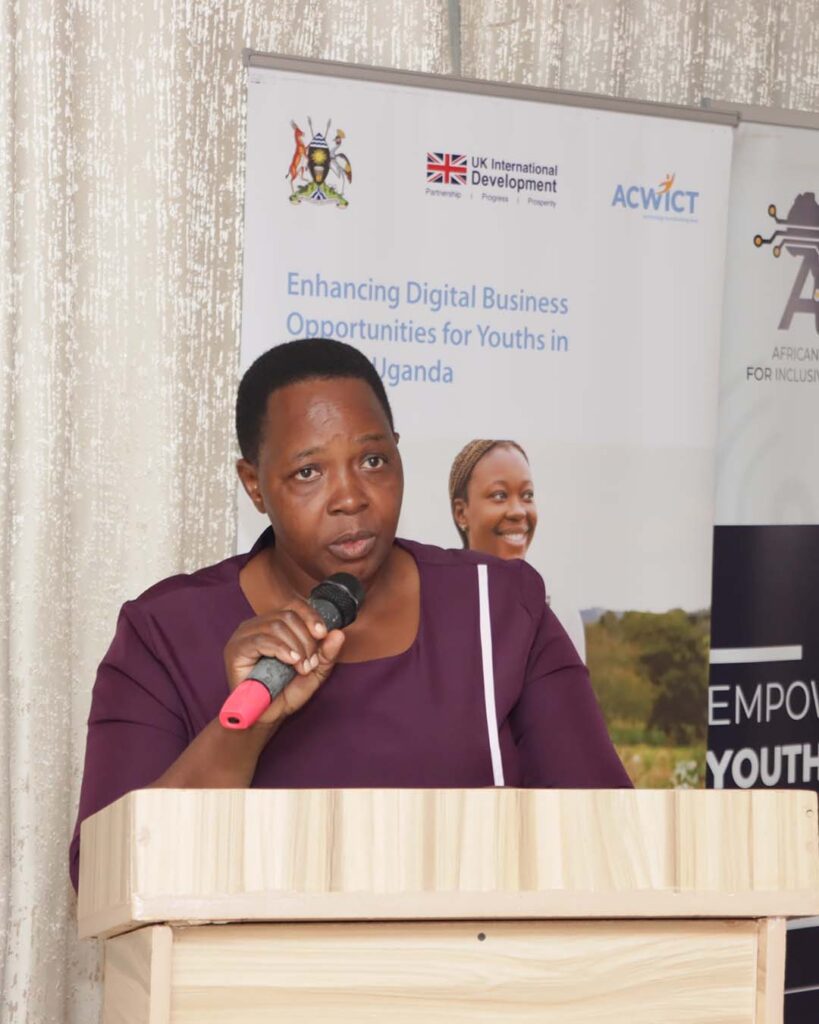
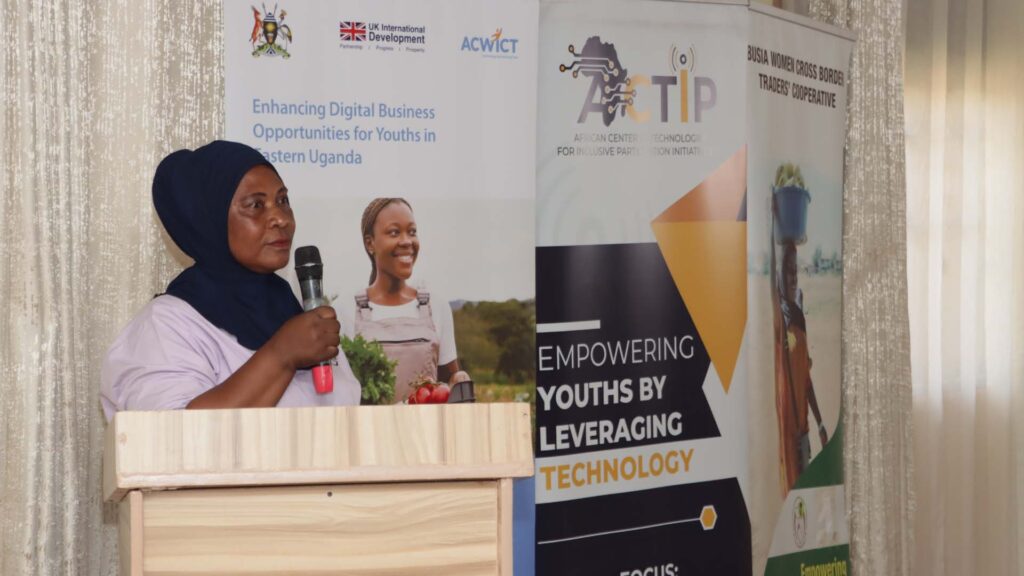
Eastern Uganda, comprising districts such as Tororo, Busia, Namaingo, and Bugiri, experiences high levels of poverty, low digital literacy rates, and limited access to formal employment opportunities. Women and persons with disabilities (PWDs) are particularly affected, facing systemic barriers that limit their participation in the labor market and business landscape. The Enhancing Digital Business Opportunities for Youths in Eastern Uganda program is designed to tackle these challenges by equipping youth with digital skills, fostering entrepreneurship, and creating pathways for self-employment and economic independence.
Program Overview
African Center of Technologies for Inclusive Participation Initiative LTD (ACTIP) & Busia Women Cross Border Traders' Cooperative (BWCBTC) Union in partnership with African Centre for Women in Information and Communications Technology (ACWICT) are inviting women, youth and Persons with Disabilities (PWD) to apply for the digital skills training under the “Enhancing Digital Business Opportunities for Youths in Eastern Uganda” ; project. The initiative is supported under the UK Digital Access Programme (DAP). The aim of the project is to create employment opportunities for youths, women and PWD’s at grassroot level in Tororo, Busia, Namaingo and Bugiri Districts through digital skills, commercialization of their talent, innovation and entrepreneurial skills in agriculture, creative and the digital gig economy into viable self -employment businesses.
This 6-month grassroots project (January 2025 – June 2025) will empower youths, women, and Persons with Disabilities (PWDs) by imparting foundational, basic, intermediate and advanced
digital skills, fostering entrepreneurship, and creating pathways for self-employment in the Agri-Business, Creative economy, IT services & Gig work.
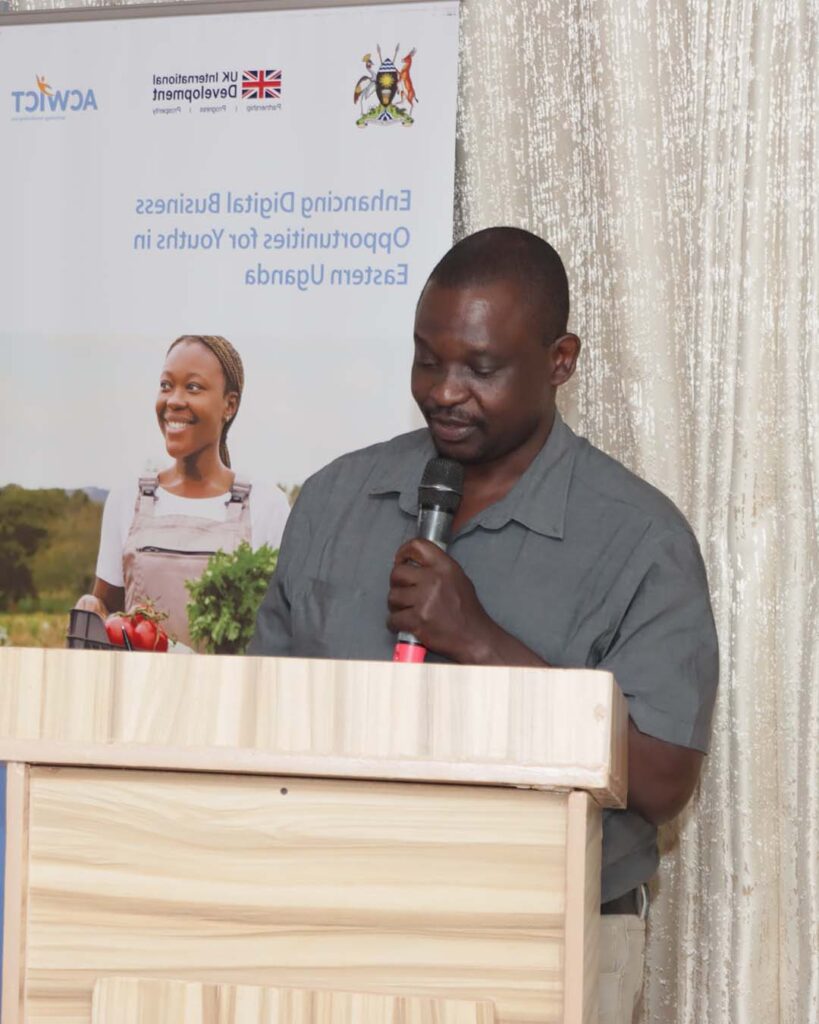
The project's primary objectives, distilled into four aligned outcomes, are:
- Enhanced Utilization of Government Digital Services: Increase the adoption and efficiency of digital services provided by the government, making them more accessible and useful to the population.
- Improved Agricultural Practices and Productivity: Boost farm productivity and farmer incomes through the dissemination of beneficial agricultural practices facilitated by digital tools and services.
- Digital Inclusion and Empowerment: Expand digital inclusion, especially for women, girls, senior citizens and Persons with Disabilities, by reducing digital exclusion and enhancing their access to digital jobs, skills, and entrepreneurship opportunities.
- Creation of knowledge products and publications, including the production of six policy briefs, six journal articles, six webinars, three YouTube videos, and a dedicated research website.
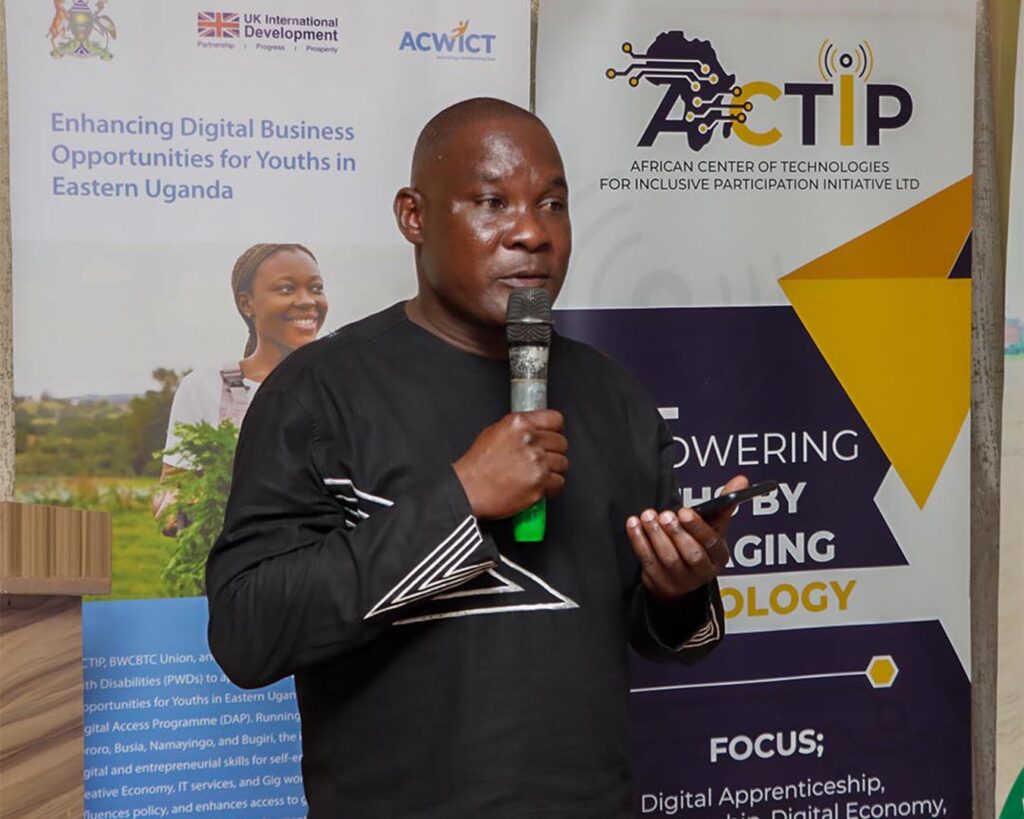
Target Beneficiaries & Geographic Focus
The project is being implemented in 4 districts in Eastern Uganda with high levels of youth unemployment and digital exclusion. The program will directly benefit:
- Marginalized youth (aged 18-35 years), including women and PWDs, who face barriers to digital access and economic opportunities.
- Youth-led enterprises and startups, providing them with the necessary digital skills and business development support.
- Community-based organizations and cooperatives, to promote long-term sustainability of digital businesses in the region.
Program Components
This initiative is structured to enhance the digital and entrepreneurial capabilities of youth by providing hands-on training, mentorship, and access to market opportunities. The program core components include:
1. Digital and Entrepreneurship Training:
- 800 youth & 200 general citizens will be trained basic digital literacy and 300 youth trained in intermediate digital skills, including ICT literacy, digital marketing, e-commerce, online freelancing, and business process automation.
- Participants will acquire entrepreneurial knowledge, financial literacy, and skills to establish and manage successful digital enterprises.
2. Business Development Support:
- The program will provide technical assistance and mentorship to youth entrepreneurs, helping them refine their business models and access funding opportunities.
- Support will be provided in developing sustainable business plans and leveraging digital platforms to enhance business operations.
3. Market Linkages and Employment Facilitation:
- The program will create direct linkages between trained youth and potential employers, including the private sector and digital work platforms.
- Young entrepreneurs will be supported in accessing national and international markets to scale their businesses.
4. Public Awareness and Policy Advocacy:
- The initiative will engage key stakeholders, including government authorities, policymakers, and development partners, to promote an enabling environment for digital entrepreneurship.
- Awareness campaigns will be conducted to reach 20,000+ citizens highlighting the benefits of digital skills and encourage more youth to embrace digital economic opportunities.
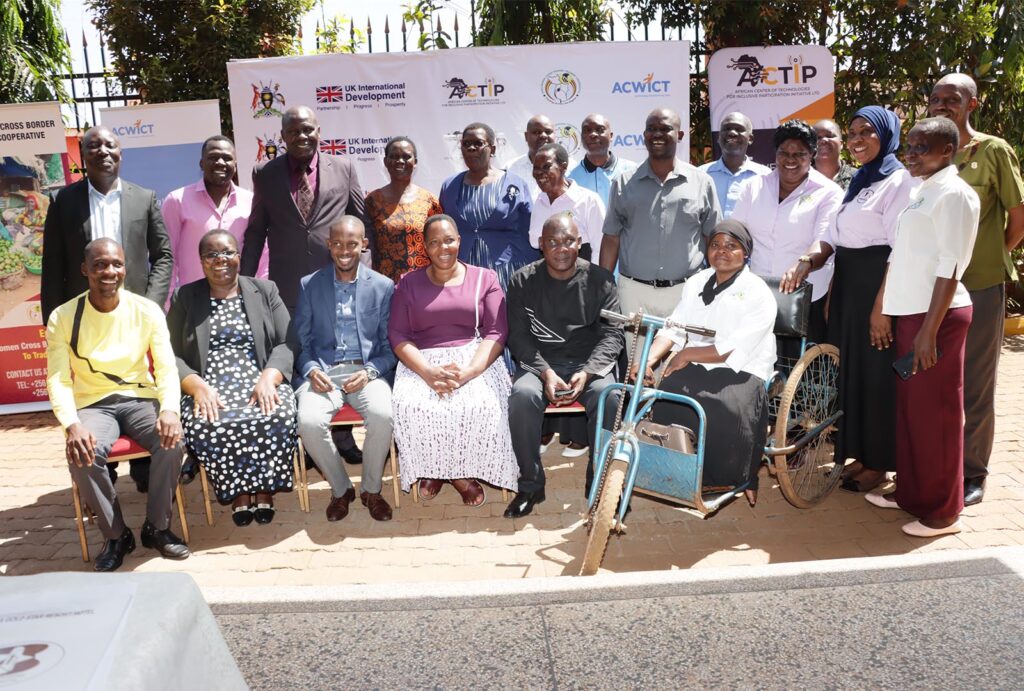
Stakeholders & Partnerships
The success of the program depends on collaboration with key stakeholders, including:
- Government agencies at national and district levels to support policy implementation and program sustainability.
- Private sector partners providing job opportunities, mentorship, and financial support for youth enterprises.
- Community-based organizations and cooperatives facilitating outreach, mobilization, and ongoing mentorship for participants.
- Development partners and donors committed to supporting youth economic empowerment and digital inclusion initiatives.




